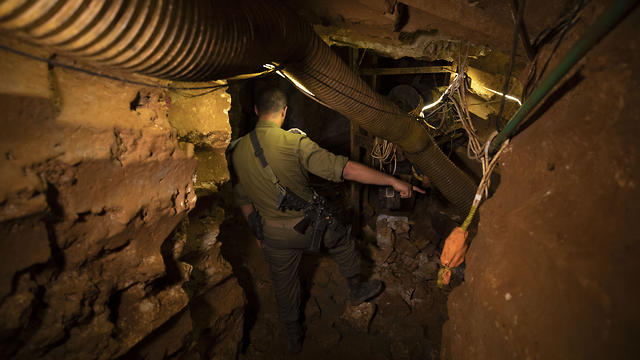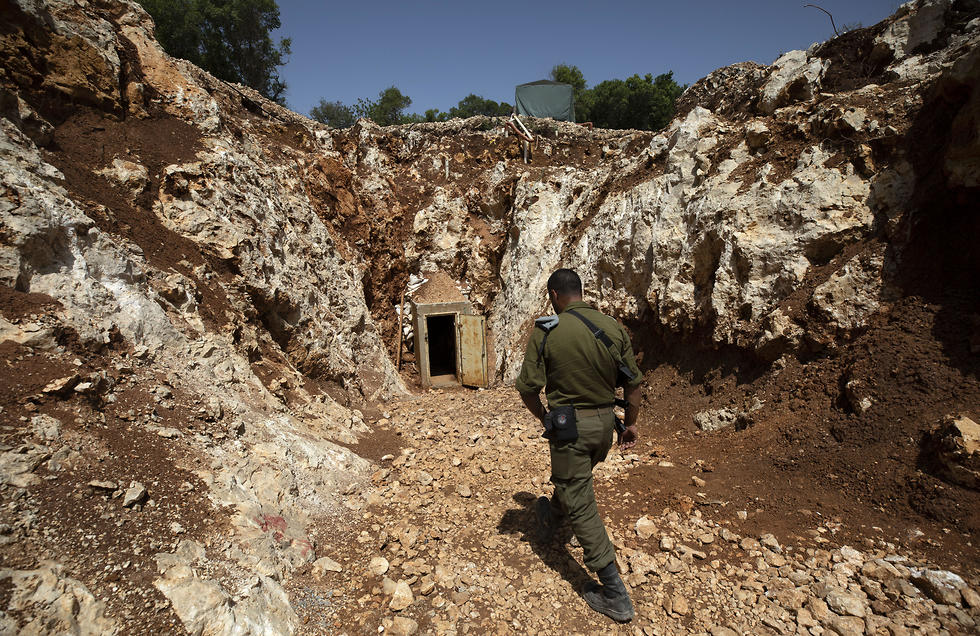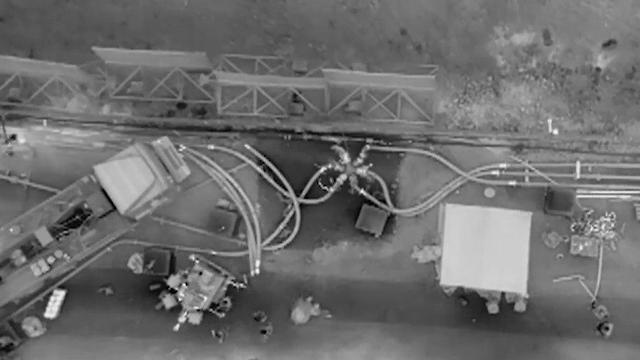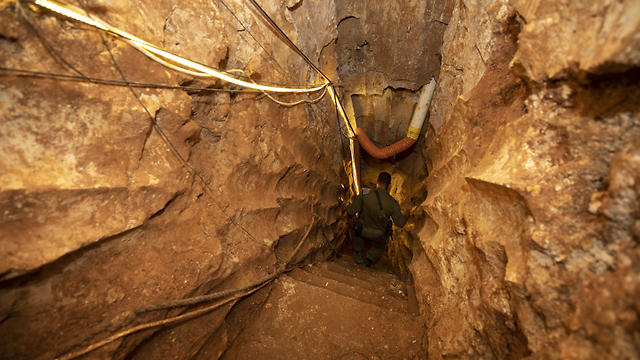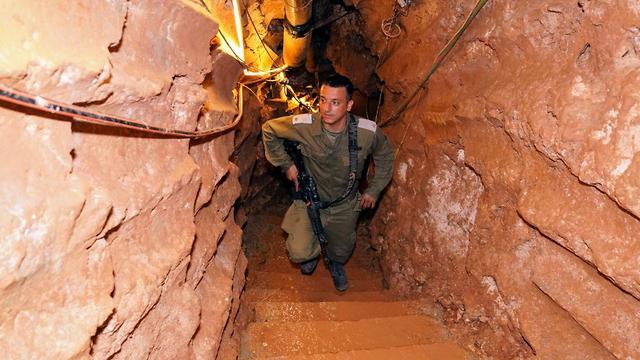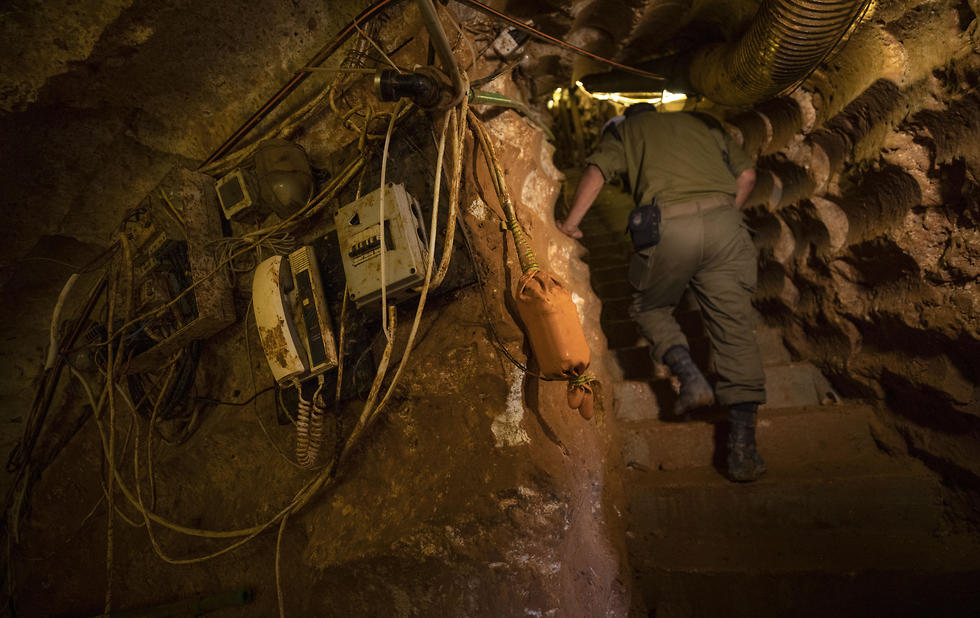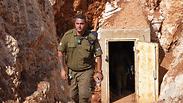
The Israeli military says it has finished sealing the last of a series of Hezbollah attack tunnels under the country's northern border with Lebanon, roughly six months after they were found.
Military spokesman Lt. Col. Jonathan Conricus told reporters Monday during a tour of the tunnel that it was "the longest and deepest attack tunnel that Hezbollah dug," plunging more than 80 meters (260 feet) below ground.
On Monday, the army showed reporters the inside of the tunnel passing deep underground from Lebanon into northern Israel, saying it was intended for use by Lebanese Hezbollah militants.
The tunnel was rigged with electrical wiring, fuse boxes and communications equipment. An army spokesman said it began almost a kilometer (mile) away inside Lebanon and reached depths of some 80 meters (265 feet) - about the height of a 22-storey building - as it crossed into Israel, near the town of Zarit.
It came to light earlier this year during an army operation in which a number of attack tunnels dug by Iran-backed Shi'ite Hezbollah were discovered and sealed off, the military said.
Israel launched "Operation Northern Shield" in December to find and destroy what it said were six Hezbollah tunnels burrowed into Israeli territory for the purpose of attacking soldiers and civilians. Hezbollah has not commented.
Conricus says the military has "now completed this operation" and that "it is safe to say that there are no more Hezbollah cross-border attack tunnels from Lebanon into Israel."
Hezbollah's leader, in response to Israel's tunnel operation, said in January that his group has been able to enter Israel for years. But he stopped short of acknowledging that the tunnels were the handiwork of Hezbollah, citing the heavily armed group's policy of "ambiguity" on military matters and a desire to deny Israel a pretext to attack.
Israel and Hezbollah last fought a war in 2006. While they have at times traded blows within Syria and Golan Heights, the Israel-Lebanon border has mostly been quiet.
Israel regards Iran as its biggest foe and Hezbollah as the main threat on its borders. It has waged an increasingly open campaign of military strikes against them both in Syria, where they have fought on the regime's side in the civil war.















